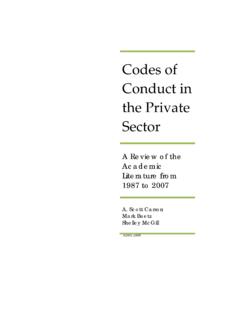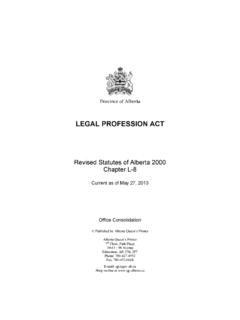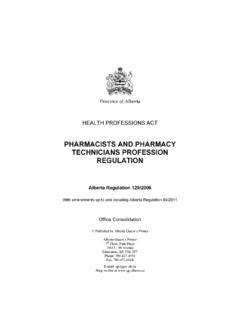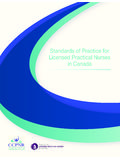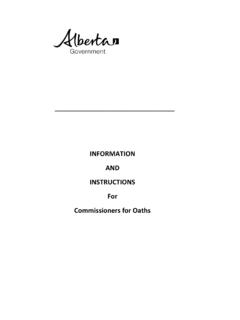Transcription of CANADA BENEFICIAL OWNERSHIP TRANSPARENCY
1 1 CANADA does not fully comply with any of the G20 Principles. The ability of competent authorities to access BENEFICIAL OWNERSHIP information is seriously restricted by the fact that the information collected in company registries, by legal entities and arrangements themselves or by financial institutions and DNFBPs is either inadequate or not made available in a timely manner. Moreover, current rules on bearer shares and nominee shareholders and directors are also inadequate, allowing BENEFICIAL owners to easily hide their identities. G20 PRINCIPLE 1: BENEFICIAL OWNERSHIP DEFINITION Score: 25% CANADA is not fully compliant with Principle 1. The term BENEFICIAL owner is not defined in Canadian law with regard to company registration.
2 The Proceeds of Crime (Money Laundering) and Terrorist Financing Act (the PC Act) CANADA s anti-money laundering legislation also does not define BENEFICIAL owner, but further regulations to the act provide what type of BENEFICIAL OWNERSHIP information must be collected by financial institutions and DNFBPs. These include: (a) in the case of a corporation, the names of all directors of the corporation and the names and addresses of all persons who own or control, directly or indirectly, 25 per cent or more of the shares of the corporation; (b) in the case of a trust, the names and addresses of all trustees and all known beneficiaries and settlors of the trust; (c) in the case of an entity other than a corporation or trust, the names and addresses of all persons who own or control, directly or indirectly, 25 per cent or more of the entity; and (d) in all cases, information establishing the OWNERSHIP , control and structure of the entity.
3 Within this framework, the requirement covers some of the key issues such as the BENEFICIAL owner being a 2natural person, but it does not mention ultimate control and limit the exercise of direct or indirect control to the equivalent of a percentage of share OWNERSHIP . G20 PRINCIPLE 2: IDENTIFYING AND MITIGATING RISK Score: 80% CANADA published an Assessment of Inherent Risks of Money Laundering and Terrorist Financing in August 2015. The final assessment is available online. The assessment covered 27 economic sectors and financial products and found that many of those are highly vulnerable to money laundering and terrorist financing. Of the assessed areas, domestic banks, corporations (especially private for-profit corporations), certain types of money services businesses and express trusts were rated the most vulnerable, or very high.
4 It also found that there are numerous opportunities in many sectors to undertake transactions with varying degrees of anonymity and to structure transactions in a complex manner, facilitating money laundering. No public consultations were held prior to the publication of the 2015 Assessment and it is not clear whether external stakeholders, such as financial institutions, DNFBPs or their industry associations were consulted directly. G20 PRINCIPLE 3: ACQUIRING ACCURATE BENEFICIAL OWNERSHIP INFORMATION Score 0% Current laws and regulations do not require legal entities to maintain information on BENEFICIAL OWNERSHIP . Consequently, there is also no requirement that the BENEFICIAL OWNERSHIP information is maintained within CANADA .
5 There is also no requirement for a nominee shareholder to declare to the company if they own shares on behalf of a third person. Shareholders are also not legally obliged to inform the company regarding changes in share OWNERSHIP . The CANADA Business Corporation Act (CBCA) CANADA BENEFICIAL OWNERSHIP TRANSPARENCY 2015 TRANSPARENCY International. All rights reserved. Printed on 100% recycled paper shares or debt obligations, including the number of securities held by each security holder. Similar requirements exist in corporate laws at the province level. However, there is no requirement to disclose who the ultimate BENEFICIAL owner of these shares is. As such, BENEFICIAL OWNERSHIP information is only recorded if the legal owner of the shares happens to be the BENEFICIAL owner.
6 G20 PRINCIPLE 4: ACCESS TO BENEFICIAL OWNERSHIP INFORMATION Score: 14% Timely access to BENEFICIAL OWNERSHIP information by competent authorities in CANADA is restricted. As there is no BENEFICIAL OWNERSHIP registry and legal entities are not required to maintain BENEFICIAL OWNERSHIP information, authorities have to rely on the information collected by financial institutions and DNFBPs or on basic information contained in security registers, but access to those is also restricted. Moreover, CANADA does not have a central company registry and information collected in the majority of provinces is insufficient to support the identification of the BENEFICIAL owner. In the majority of provinces, with the exception of some such as Alberta, Manitoba and Quebec, company registries do not even include information on shareholders.
7 Only the names of directors are recorded. Moreover, there is no guarantee that the information recorded in the province registries is accurate and current as registry authorities are not required to verify the information provided by legal entities upon registration. The law establishes that FINTRAC has authority to examine or require production of any records that financial institutions and DNFBPs retain, including BENEFICIAL OWNERSHIP information of customers (PC Act, (1) and ). The law, however, does not establish a timeline within which obliged entities must provide the information required. The Office of the Superintendent of Financial Institutions (OSFI), CANADA s prudential banking and insurance regulator, also has power to inspect records maintained by a federally incorporated financial institution.
8 FINTRAC does not have the authority to inspect the securities register maintained by business corporations other than those with anti-money laundering obligations ( financial institutions and DNFBPs). Other government authorities, such as tax authorities when conducting investigations, or law enforcement bodies with court authorisation, may have access to the securities register held by business corporations, but there is no guarantee that the access happens in a timely manner. G20 PRINCIPLE 5: TRUSTS Score: 50% CANADA has a domestic trust law and also allows the administration of foreign trusts. However, the current legal framework is still not fully in line with the G20 Principle. There is no statutory duty in CANADA for trustees of a trust to retain records on the beneficiaries or settlors of the trust.
9 Nevertheless, trustees under Canadian common-law rules must account for their administration of the trust to those who have an interest in the trust. This may result in a practical need for the trustees to retain records of the beneficiaries. If the trust is documented by way of a trust deed, the beneficiary information will normally be included in the trust deed, but this document is not filed with a governmental authority and there is no registration requirement for trusts. Financial institutions are required to obtain, and take reasonable measures to confirm, the name and address of all trustees and all known beneficiaries and settlors of a customer that is a trust. G20 PRINCIPLE 6: ACCESS TO BENEFICIAL OWNERSHIP OF TRUSTS Score: 33% FINTRAC has authority under the law to examine or require production of any records that financial institutions and DNFBPs retain, including BENEFICIAL OWNERSHIP information of customers that are trusts (PC Act, s.)
10 62(1) and ). OSFI also has similar powers and can inspect records maintained by financial institutions incorporated in CANADA . FINTRAC however does not have authority to inspect the beneficiary records held by trustees themselves or recorded in trust deeds. Other governmental authorities may have access to records held by trustees, such as tax authorities when conducting investigations, or law enforcement authorities with required court authorization. 2015 TRANSPARENCY International. All rights reserved. Printed on 100% recycled paper G20 PRINCIPLE 7: DUTIES OF BUSINESS AND PROFESSIONS Score: 19% Financial Institutions Score: 38% Current laws and regulations require financial institutions to ascertain the identity of individuals or to confirm the existence of entities (entities meaning: corporations, trusts, partnerships, funds, and unincorporated associations or organizations) when entering in a business relationship.

